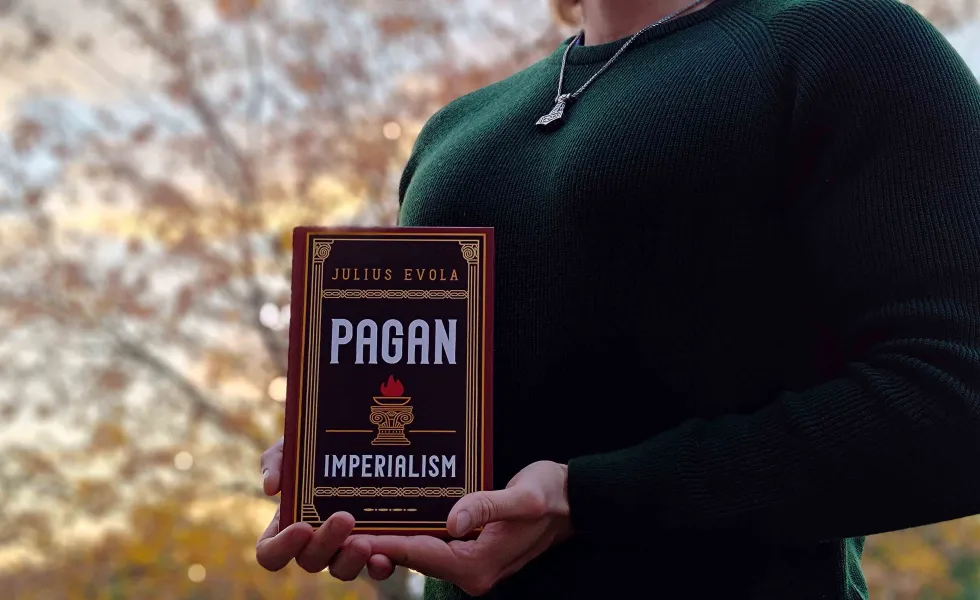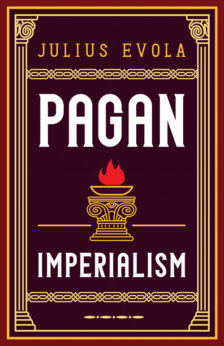I have had the pleasure of reading one of our esteemed Baron’s early works — Pagan Imperialism. This edition by Arktos comes with two helpful forewords; the first is by James Kirkpatrick — whose clear-sighted sociopolitical commentary I always appreciate. Enjoyers of Evola will be familiar with many of the views presented in the book (he returns to them in his later books) — the only major difference I noticed was that he uses the term Mediterranean in a positive sense in this book. In his later works he juxtaposes the Mediterranean (negative) against the Aryan-Roman (positive). Pagan Imperialism is Evola’s harshest critique against Christianity — when reading it one can sense his hope for Italy to return to a Pagan Imperial* Tradition. As it turned out, Mussolini chose an alliance with the Catholic Church — to Evola’s dismay.
*Imperial in this context does not necessarily refer to an empire which conquers other nations, but rather a Tradition in which the Emperor (and not the Pope) holds the highest spiritual authority (thus combining temporal and spiritual power, and not separating them).
Why Do I Read Evola?
I responded to this question at length in Podcast Episode 48. Contemplations on the Mountain. Formulated in the most unpretentious and straightforward way possible, reading Evola makes me feel cool. It makes me feel like I am in the League of Shadows in Christopher Nolan’s Batman, or like I am about to embark upon an expedition to find Shambala. Do not get me wrong; in Evola’s many books there is plenty of valuable knowledge to be found — especially when it comes to religio-social and esoterico-magical matters. For me, however, the most potent magnetism of his work lies in his epic and unapologetic way of describing things. The following quote is a good example:
Similarly, the Indo-Aryan tradition knows of Shveta Dvipa, the “Island of Spendor,” also located in the extreme North, where Narayana, the one who “is the light” and “stands above the waters” (above the randomness of events), resides. They also speak of the Uttarakura, a primordial Nordic race; for them, “Nordic” means the solar path of the gods — deva yāna — and the term uttara conveys the concept of everything sublime, elevated and superior — what can be called Arya, Aryan, in the sense of Nordic.
Julius Evola — Pagan Imperialism. Page 7.
Sounds absolutely epic. The quote continues:
The Achaean-Dorian lineages are heirs to the legendary Hyperborean Nordics: from here came the most characteristic god and hero of this race, the solar Apollo, the destroyer of the serpent Python.
Julius Evola — Pagan Imperialism. Page 7.
The historical context behind these myths is that the ruling castes of Iran and India originated in Europe — I have discussed the Corded Ware Culture at length elsewhere. Pictured below: An Aspiring Mystic reading Evola’s Men Among the Ruins (review).
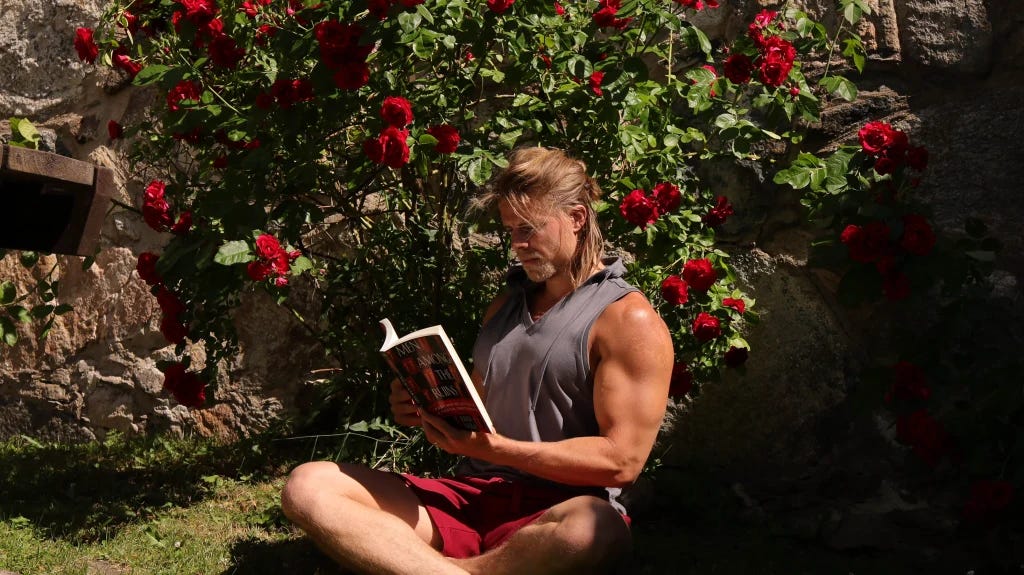
Catholicism and Christianity
A main point in the book is that there is a difference between Catholicism and Christianity. Evola notes, in regard to the formation of the Roman Catholic Church, that a compromise was reached (meaning that Pagan elements were retained).
Let us state this point without uncertainty. Christianity is one thing, Catholicism is another.
Julius Evola — Pagan Imperialism. Page 33.
In the foreword James Kirkpatrick refers to the excellent book The Germanization of Early Medieval Christianity by James C. Russel (review) — in which the author details the changes Christianity underwent as it came into contact with European (first Graeco-Roman and later Germanic and Celtic) religious traditions. In another book Evola notes the following:
Whoever is traditional by being Catholic, is not traditional but halfway.
Julius Evola — Recognitions. Page 120.
So, he is not necessarily hostile to the Catholic Church, but rather he views it as insufficient.
Charlemagne and the Pope
In the chapter titled “Pagan Values and Christian Values”, Evola notes that Pope Leo III prostrated himself before Charlemagne during the latter’s coronation. This event was pleasing to Evola since the correct hierarchy was observed — i.e. Emperor being higher than the Pope. Pagans usually dislike Charlemagne for his brutality against the Pagan Saxons. Said brutality was responded to by our Scandinavian forefathers — who retaliated with a holy war against the Christian nations (the Frankish one, for example). There were, of course, other factors that ignited the Viking Age, but the religious aspect is an interesting one to take into consideration.
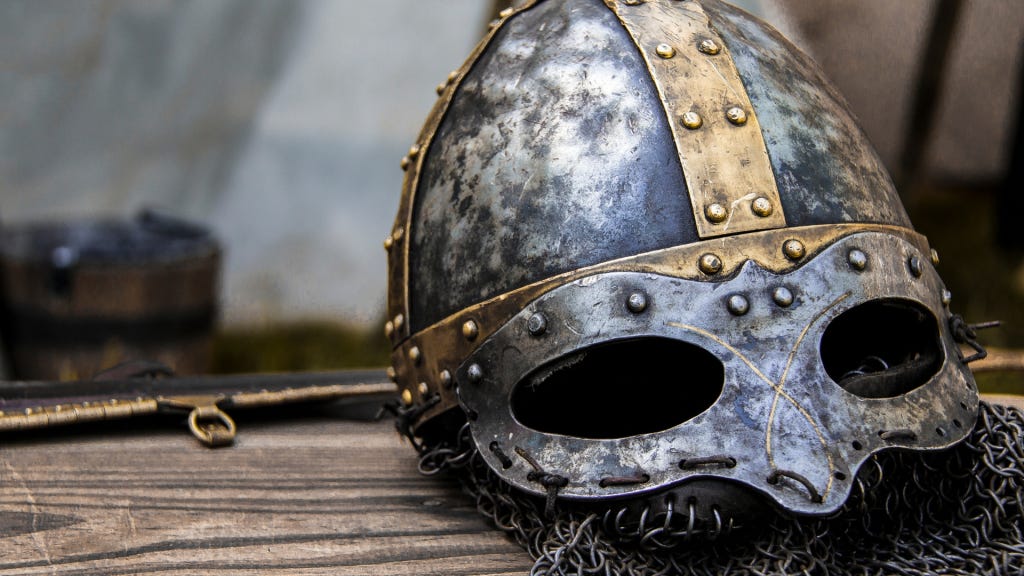
The Guelphs and Ghibellines
Since I have reviewed quite a few of Evola’s books, I have talked about this at length before (both in my podcast and in book reviews), but it bears mentioning here as well since understanding the conflict is central to understanding Evola’s views on Imperium. The Guelphs were supporters of the Pope, the Ghibellines were supporters of the Holy Roman Emperor. Evola maintained that the true Solar-Pagan Regal Tradition was that the Emperor (Pontifex Maximus during Roman times) should be the highest spiritual authority — and not the Pope.
Jesus as God-Man
Evola says the following about Jesus:
Jesus is not the highest and noblest type of man imaginable. Jesus is not of the race of god-men.
For us, as for the Romans, a god-man cannot be someone who was executed and crucified.
Julius Evola — Pagan Imperialism. Page 158.
I will share my own view of Jesus in a coming video, but what I can say for now is that I believe Jesus to be a noble and divinely blessed man — he is not a God of mine, but I respect him, and he has a place in my heart by virtue of having been an important entity for many of my ancestors. On the following page, Evola says the following about the Buddha:
We are sceptical of all the so-called virtues of Christ and his followers because they often seem like mere disguises for necessity. We also understand sacrifice, dedication, forgiveness, and love, as we have already mentioned. But true renunciation is not for those who have nothing to lose. It is for the Buddha, who — young, beautiful, and regal, with the world at his feet — says no to it all.
Julius Evola — Pagan Imperialism. Page 159.
For those interested in Evola’s views on Buddhism, I can recommend The Doctrine of Awakening (review) and The Yoga of Power (review). Pictured below: Yours Truly meditating upon the cosmos after reading said books.

Biological Race Is Not Everything
In the chapter titled “The Democratic Error”, Evola shares the following:
We must remember that speaking of blood in humans is not the same as in animals. If by blood we mean the biological heritage of a race, race in animals is everything, whereas in humans it is only a part.
Julius Evola — Pagan Imperialism. Page 95.
There is a popular misconception regarding Evola’s views on race. The misconception is that he did not place emphasis on biological race. He never said that biological race was not important. As shown in the quote above, he (correctly) just emphasised the fact that biological race is not everything, and it would be a mistake to only focus on that aspect of the human being. He elaborates on this at length in other books — I also elaborate on the matter in Dauntless.
Conclusion
Pagan Imperialism has 234 pages and is one of Evola’s more accessible works — making it a good book to start with for those who are unfamiliar with the author. I can also recommend it for those who are previously familiar with Evola! Lastly, I want to thank Arktos for doing a really good job with this edition — beautiful stuff!
This article was originally published here.
Buy Pagan Imperialism here.
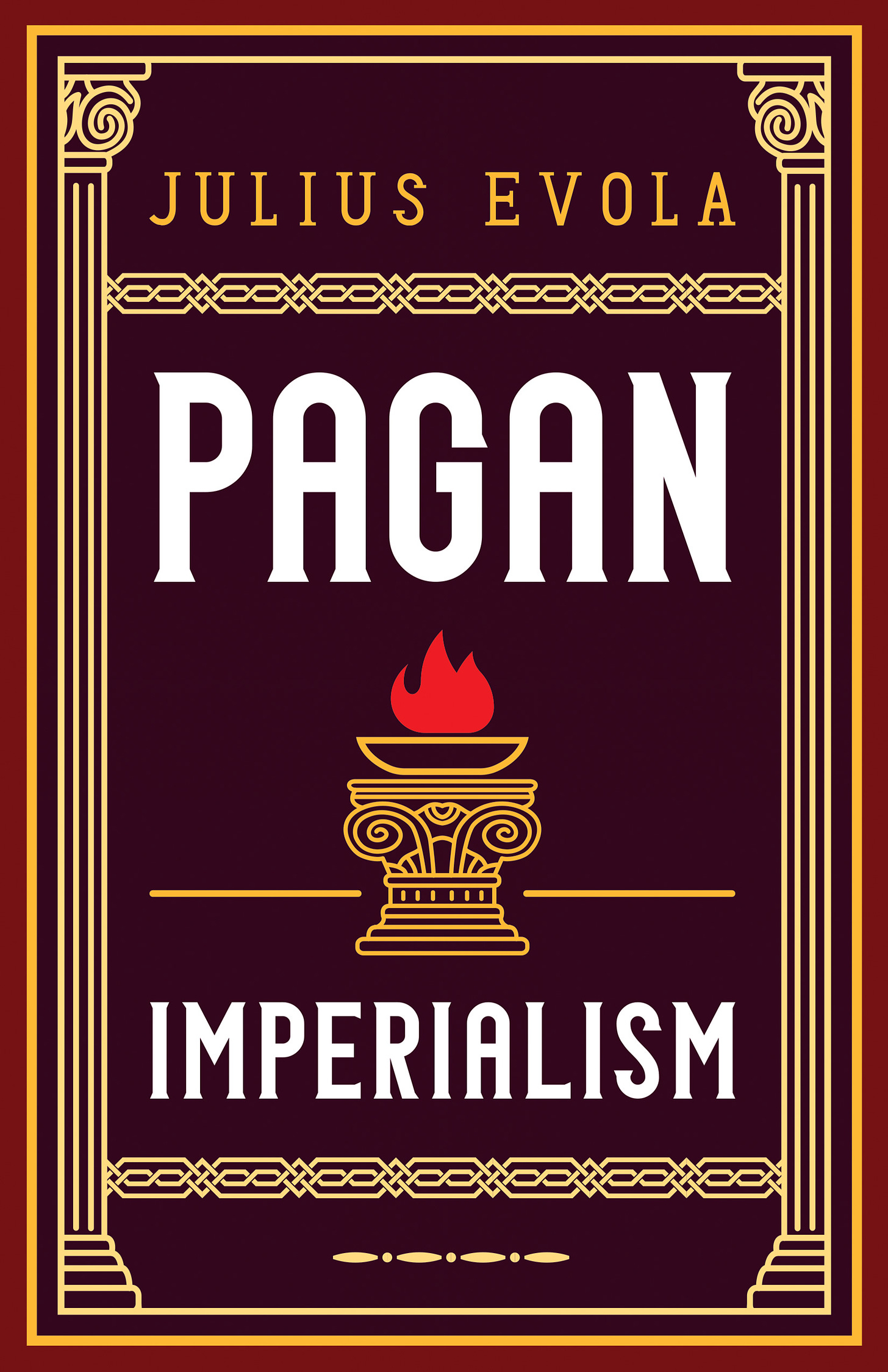
Follow The Golden One: Instagram, YouTube, Jotunheim Nutrition (supplements), Legio Gloria (clothing)
